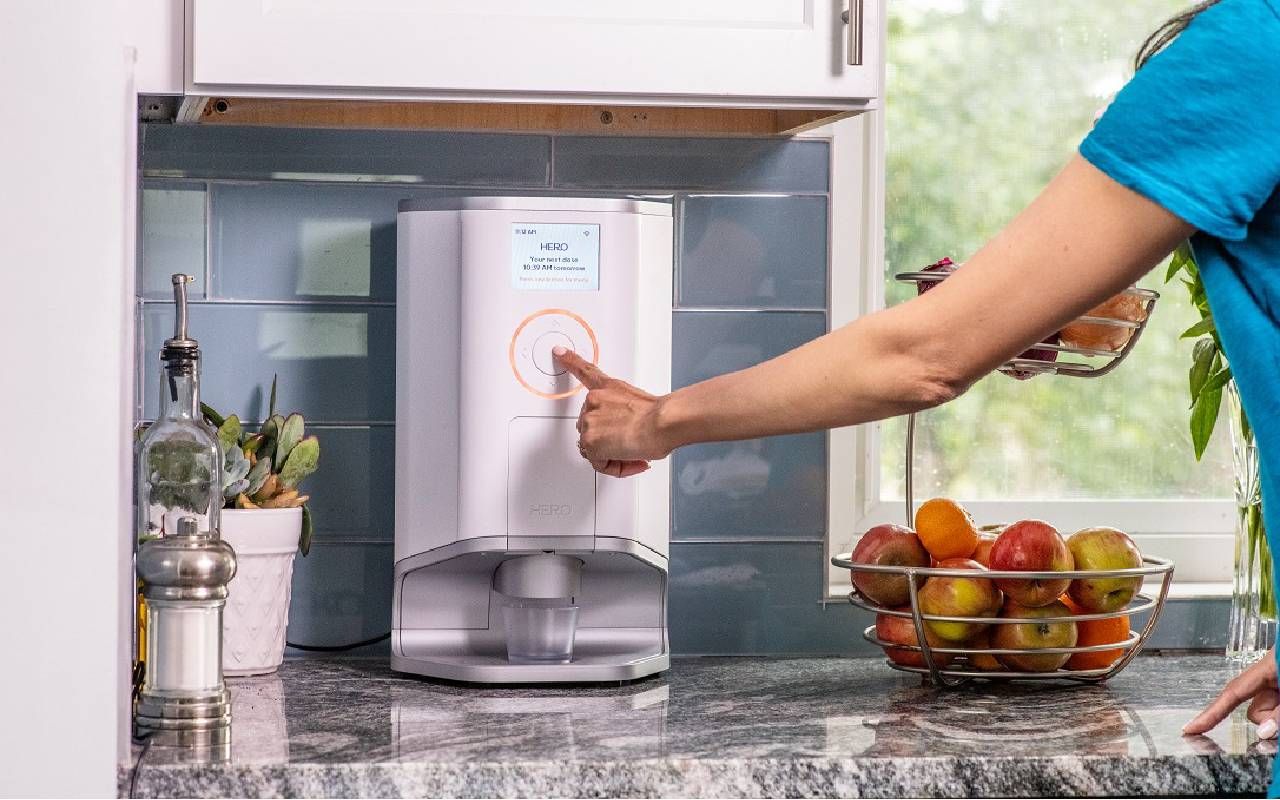AI for Older Adults — Friend or Foe?
Engineers and inventors are finding ways to use artificial intelligence to make sure people take their medicine and stay safe at home
It is difficult these days to read the news without encountering articles about artificial intelligence (AI). While technology's previous superstar, self-driving cars, has fallen out of favor, it appears that AI is here to stay.

A recent study shows only 9% of adults aged 50 and over have not heard of or read about AI. While the technology holds great promise to make life easier for older adults, this risk-averse group is not exactly embracing the concept with open arms.
Among consumers aged 65 and older, 84% say they are concerned about online privacy.
We have seen this pattern before: skepticism of new advances in technology gradually giving way to acceptance and then near-ubiquity. Not that long ago, many of us were reluctant to provide a credit card number to make an online purchase. With e-commerce sales topping $6.3 billion in 2023, it is safe to say that ship has sailed.
Impediments to Adoption
Two main hurdles are hampering widespread adoption of AI by older Americans. The first involves the same concern that slowed the growth of online shopping — privacy worries surrounding the collection and release of personal information.
Among consumers aged 65 and older, 84% say they are concerned about online privacy. Nearly three-quarters of this age group report that they have been targeted by cyber criminals, and 43% know someone who has been an actual victim.
The other hurdle relates to the sheer speed with which AI is evolving. Almost 75% of adults over 65 say they need help using new technology. That worked out well with laptops, tablets and smartphones, when tech-savvy children (or grandchildren!) can provide guidance. Beyond assistance setting up Alexa or Siri, not much expertise is available with AI since we are all trying to figure it out together.
There is a lot to be excited about now and in the near future. Here is a look at several key areas where AI is already delivering significant benefits.
Medication Management
For better or worse, we have become a nation of pill-poppers. Forty percent of older Americans take five or more medications per day, and 20%, almost 11 million, take 10 or more.
Keeping up with that many different drugs can be overwhelming. Combined with aging factors like cognitive decline, failure to maintain medication schedules is a common problem.
Medisafe Digital Drug Companion is a highly regarded med reminder app that doesn't limit the number of medications you can enter and has a customizable dosing schedule. It tracks adherence and provides family notifications when schedules are not followed.
Hero is a smart pill dispenser that can hold a 90-day supply of as many as 10 medications in any shape or size. One button sorting and dispensing plus both sound and blinking light alerts take away any guesswork. An app keeps users and family or caregivers connected.
Developers are working on AI-equipped pill bottles that provide real-time monitoring and intervention by detecting when a dose is missed and sending reminders. In the near future, chatbots will be able to engage in conversations, answer questions and provide personalized tips. Down the road, AI-powered robots will dispense medications and eliminate human error entirely.
Nutritional Support and Meal Planning
Researchers estimate that a "substantial" percentage of older Americans are malnourished. Poor nutrition often results from inadequate food intake, poor food choices or a combination of the two. Psychological factors such as anxiety and depression cause lack of appetite, as does loss of taste and general disinterest in planning and preparing balanced meals.
AI platforms of the future may act as virtual dieticians.
Numerous AI-powered apps are already available that do the heavy lifting of meal planning for you. ChefGPT provides recipe recommendations based on your dietary and lifestyle requirements. Don't want to go shopping for ingredients? Tell the app what is in your fridge and pantry and it will create a custom recipe with what you have on hand.
TummyAI is a comprehensive app that designs meal plans based on factors that include your favorite foods, dietary restrictions, allergies, location and grocery budget.
Nutritional support is on track to become more personalized with AI tools. Already DayTwo is able to analyze an individual's microbiome — the bacteria, fungi and other microorganism in the digestive tract — to control blood sugar levels with custom-tailored meal plans. AI platforms of the future may act as virtual dieticians that improve patients' health by understanding their unique health conditions and goals.
Cognitive Enhancement
Occasional confusion and memory loss are not unusual occurrences as adults age. However, frequently forgetting how to perform routine tasks of daily life like preparing meals and managing personal finances are indications of severe cognitive decline.
The $6 billion brain-training industry is trying to address concerns about such decline — and other conditions that often accompany aging — with products and services that vendors suggest may improve one's memory or keep at bay medical conditions like Alzheimer's, stroke and depression.
Do they work? The jury is still out, as a mixed bag of research has provided no definitive answers. For those hoping that a few minutes of game playing and problem solving are worth a try, these are a couple of popular options:
Lumosity is the world's most popular brain-training app. They have been at it for 14 years and boast 100 million members. After a free trial period, monthly subscriptions are $14.95 and annual subscriptions are $79.95.
Mobility and lack of independence issues may decrease if self-driving cars eventually find their way into the marketplace.
If promises to "push you hard with intense workouts" are what you are looking for, Peak Brain Training is ready to unlock your full mental potential. An AI personal trainer will be by your side to challenge you, keep you motivated and track your progress.
Safety Monitoring
More than 12 million Americans over the age of 65 live alone. According to the Centers for Disease Control and Prevention, one out of four in this group falls every year.
When you add all the other potentially adverse health events that increase as people age, AI home monitoring systems and wearable devices are a wise investment for both older adults living independently and their families or caregivers.
While many Apple Watch owners take advantage of the fitness functions built into the device, they may not be aware of various health monitoring features available.
Fall Detection automatically calls emergency services and contacts when you have been immobile for more than a minute after a hard fall, alerting them to your location. Installing an EKG app notifies the wearer of low and high heart rates as well as irregular rhythms.
The watch can be taken to the next level by pairing it with a platform like Safeguard. Using AI and cutting-edge algorithms, Safeguard continually analyzes all the data it receives for warning signs that may indicate potential health issues, sending alerts to both the wearer and designated contacts.
What's Next
EnvoyatHome offers a passive technology requiring no cameras or wearable devices. Algorithms fed data from strategically placed sensors throughout the home learn the person's behavior patterns and constantly compare them to an established baseline. Customized system triggers alert caregivers of unusual activity. A dashboard collects data through charts and graphs that can be shared with primary care providers.
AI has immense potential to enhance the lives of older adults. Mobility and lack of independence issues may decrease if self-driving cars eventually find their way into the marketplace. Chatbots, virtual avatars and assistive robots may help combat loneliness by engaging in conversations and providing empathetic emotional support.
Developers can accelerate more widespread acceptance of this technology by first addressing privacy concerns. Soliciting input to create true age-friendly solutions along with easy-to-understand training, whether personal or online, are keys to older adults embracing the use of AI. Bridging this digital divide will empower them to lead healthier, more connected lives.


